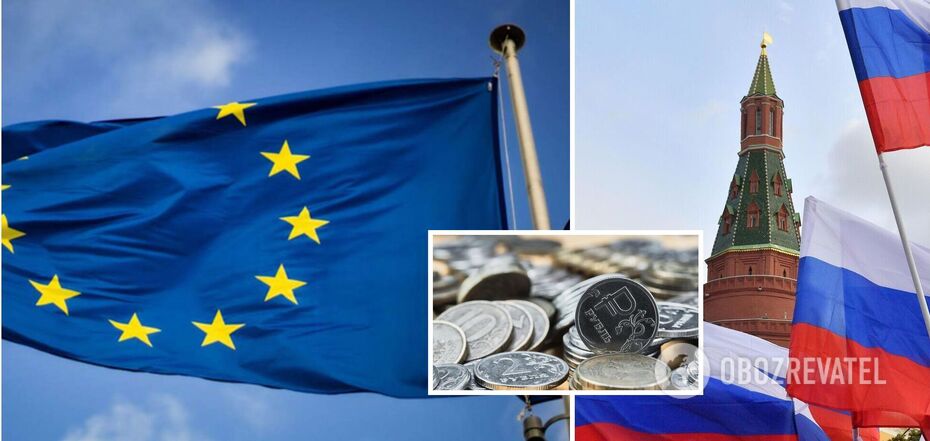News
The EU is going to finance Ukraine with Russian money: what it will be spent on
The EU Council has adopted a decision that paves the way for the use of proceeds from Russia's frozen assets in favor of Ukraine. It is expected that these funds (and, in the long run, the assets themselves) will allow Ukraine to at least partially finance its huge budget deficit and restore destroyed property.
As explained by the Ministry of Justice, the decisions and the resolution adopted by the EU Council clarify the obligations of central securities depositories that have frozen assets and reserves of the Central Bank of Russia. In other words, they do not directly authorize the use of frozen Russian funds in favor of Ukraine, but they do create the conditions for this.
"The relevant decision allows the Council to set a financial contribution to the EU budget, collected from the profits from the use of Russian assets. The funds are to be used to support Ukraine and its recovery and reconstruction," the Ministry of Justice said.
How much Russian money is frozen in the West
In general, it is noted that 260 billion euros of the Central Bank of Russia's assets are currently frozen in the jurisdictions of the collective West. These funds are held, in particular, by:
- G7 partners;
- The EU;
- Australia.
The bulk of the money is in the EU. More than two-thirds of the Central Bank of Russia's assets are frozen there.
What was adopted by the EU Council
As explained by the Ministry of Justice, the EU Council, in particular, decided that depositories holding assets of the Central Bank of Russia worth more than EUR 1 million should separately
- take into account the balances accumulated as a result of EU sanctions;
- keep the corresponding profits.
In addition, depositories were prohibited from disposing of their net profits. However, upon their request, supervisory authorities in each country may decide to release part of this net profit, subject to compliance with the authorized capital and risks.
"The decision allows the Council to establish a financial contribution to the EU budget collected from the profit from the use of rosaceous assets," the ministry said.
What Ukraine will get
For its part, the Center for Economic Strategy emphasized that the use of income from Russian assets, and in the future, the assets themselves, will allow Ukraine to at least partially finance at least two of the most important expenditure items. In particular:
- "a huge budget deficit";
- restoration of destroyed property.
The important thing here is that this will be done at the expense of Russia, which attacked Ukraine, "and not the taxpayers of the partner countries."
"This decision is the first step towards what we should strive for 一 fair punishment and the use of the aggressor's resources to overcome the consequences of its actions," the Center emphasized.
Putin threatens over billions frozen in the EU
For his part, Russian dictator Vladimir Putin's press secretary Dmitry Peskov had earlier threatened Ukraine's Western allies over plans to use frozen Russian assets for the benefit of our country. Thus, Peskov threatened the European Union (EU) and the Group of Seven (G7: Canada, France, Germany, Italy, Japan, the United Kingdom, France, Japan, and the United States) with "decades-long lawsuits."
"If such decisions are made, they will be deeply illegal, and they will have very, very long judicial prospects for those who make these decisions and those who implement these decisions for many decades... We are convinced that those who make these decisions also understand these inevitable consequences, and we will be watching very closely," the Kremlin spokesman said on February 5.
He clarified that "the Russian Federation will appeal such decisions." At the same time, Peskov said that Russia considers the freezing of its assets illegal, calling it "an encroachment on someone else's property" that allegedly "undermines the foundations of the entire economic system."
As reported by OBOZ.UA, the EU summit on February 1 approved the European Commission's plan to confiscate the proceeds of frozen Russian assets. The 260 billion euros of the Central Bank of the Russian Federation will not be seized yet, they will remain on European accounts, and the profit from them will be transferred to help Ukraine.
The plan allows for only 15 billion euros to be used over four years. According to Western media, most European countries are afraid to confiscate Russian assets because of the Kremlin's possible retaliatory steps. At the same time, the United States has recently made it clear that it is open to direct confiscation of the aggressor country's assets.
Only verified information is available on our Telegram channel OBOZ.UA and Viber. Do not fall for fakes!



























